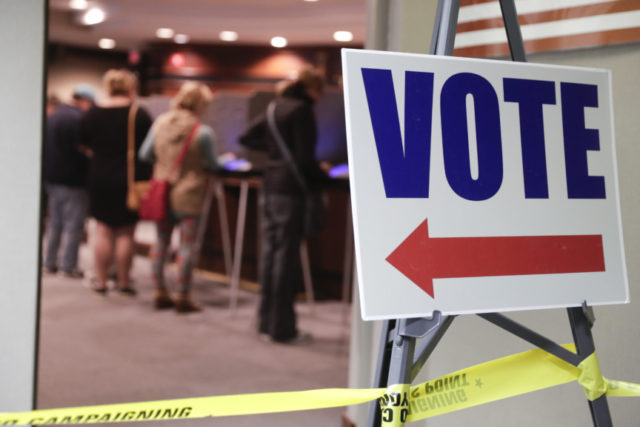China’s state-run Global Times took a look at the 2018 U.S. election on Tuesday and found the Democrat Party coming up short on policy because it relies too heavily upon identity politics.
The op-ed, written by Renmin University associate professor Diao Daming, is suffused with the conviction that China’s brand of globalism is the only real antidote to the tribal forces pulling the United States apart. Diao criticizes the Democrats for abandoning white male blue-collar voters and tips his cap to President Donald Trump for picking them up in 2016 and possibly repeating his success in 2020:
The Democrats’ identity strategy may have something to do with the painful lessons learnt in the 2016 election. It’s hard to fix the policy shortcoming of losing the lower-middle class blue-collar voters in one stroke, but it’s relatively easy to increase the vote rate of women and minority candidates. Young people, women and minorities, whose vote rate was relatively low, are the focus of the Democratic Party in drumming up support. The party adopts such a strategy to get instant results, which shows that its edge in 2018 midterms doesn’t necessarily mean that it can still come back to power in 2020.
The current Democratic Party isn’t focusing on pulling back the blue-collar workers who are of great importance, but is diversifying the composition of its voters. Such choice is decisive, changing US political ecology from polarization to fragmentation and eventually to tribalization.
Diao invokes the new book by End of History author Francis Fukuyama, Identity: The Demand for Dignity and the Politics of Resentment, to envision a future in which the increasingly acerbic Internet nourishes the tribal resentments of people who see the system as stacked against them:
As people are losing their sense of existence, they feel discriminated against, neglected and marginalized by unfair economic and social policies. This is especially true of the minorities and women and the lower-middle class which was most influenced by globalization.
In this sense, US President Donald Trump’s dependence on blue-collar voters also represents identity politics. Standing against Trump, what the Democratic Party can flaunt is the identity tag of women and minorities. When politics is divided by identity, it undergoes solidification and fragmentation at the same time.
Fukuyama’s new book posits that his previous bestselling work was wrong about the “end of history” – by which he meant the nearly universal triumph of classical liberal ideals – because of elite blunders. A loss of faith in large institutions, brought about by incompetence and corruption, brought populism, nationalism, and tribalism back with a vengeance.
Embracing the virtues of classical liberalism is Fukuyama’s recommended antidote to tribalism, allowing everyone to reclaim their sense of dignity by forging a common American identity rooted in the principles of the “Constitution, rule of law, principle of equality, and Declaration of Independence,” as he put it to NPR in a September interview.
Diao blames the stresses of catering to tribal groups for America’s irrational treatment of certain reasonable, disciplined globalist powers which modesty forbids naming:
To maintain or win support from some tribalized groups amid the dominance of identity politics, the US government will only choose the political agenda that is in line with these groups’ interests irrespective of which party is in power. For example, the Democratic Party keeps relaxing the immigration policy with the support of minority groups. To win the presidency, the parties have to win blue-collar votes. Thus, the two parties have quickly focused on the interest of blue-collar voters, even adopting short-sighted policies.
For instance, the Trump administration is waving the trade stick; the Democratic Party may return to protectionism after it takes control of the Congress and even comes back to power. In the protectionism that the Democratic Party proposes, there will be the neglected groups’ aspiration for rules and rights.
With twisted electoral politics, the US’ national interest is deconstructed into a complicated combination of different tribalized groups’ national interests. When US foreign policy tilts toward some specific internal interest, rationality hardly helps to communicate with Washington anymore.
China’s idea is to submit to an all-powerful central administration that knows what is best for everyone and eliminates the menace of tribal party politics by suppressing tribes and outlawing all but one party. The people of Tibet and the Uighurs of Xinjiang province would testify that tribal politics are a contact sport in China and the communist overlords are not shy about sending a million people to the penalty box (i.e. re-education camp).

COMMENTS
Please let us know if you're having issues with commenting.